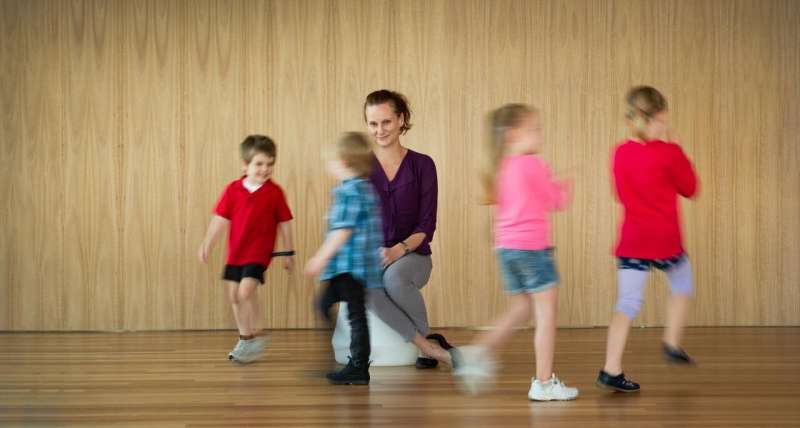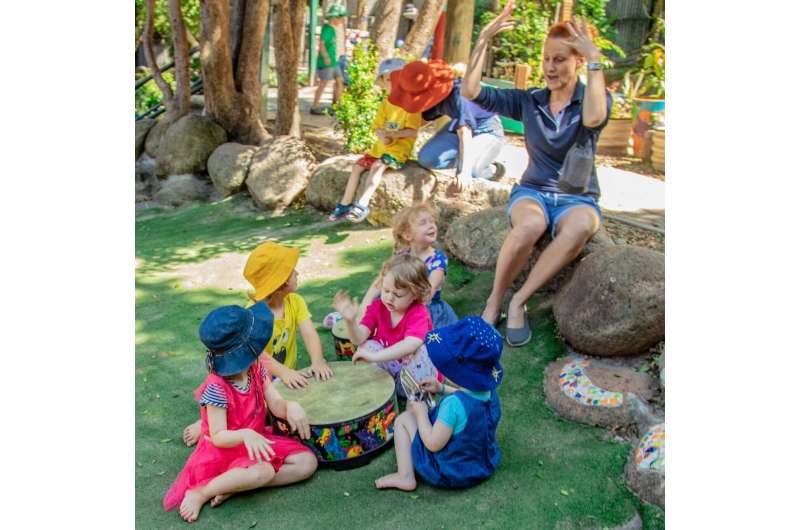Wiggling it beats a path for a better performance at school

Marching, wiggling and tapping a beat aids young children to develop their self-regulation skills and improve school readiness, as shown in newly-published QUT early childhood research.
Associate Professor Kate Williams designed a low-cost preschool program focussing exclusively on rhythm and movement activities linked to pathways in the brain to support attentional and emotional development.
"Think heads, shoulders, knees and toes but do the actions backwards while you sing forwards. It tricks the brain into gear," Assoc Prof Williams said.
The Queensland study, involving 113 children from lower socioeconomic communities, measured the effectiveness of the program to boost self-regulation skills.
"Being able to control your own emotions, cognition and behaviours is an important predictor of school readiness and early school achievement," Assoc Prof Williams said.
"The aim is for regular sessions to be introduced into daily activities of young children to help support their attentional and emotional regulation skills, inhibition and working memory. We want all early childhood teachers to feel confident to run these fun and important activities."
The findings have been published in the international peer-reviewed journal Psychology of Music.

The study is a unique investigation about preschool children and the application of a rhythm and movement program to address socioeconomic-related school readiness and achievement gaps.
Assoc Prof Williams said differences in neurological processes can produce educational inequalities for young children who experience disadvantage. It's been identified by UNICEF as an international priority.
The study recognises what Assoc Prof Williams describes as the 'musician advantage'—enhanced neural plasticity and executive functioning—particularly among children given formal musical instruction.
"The children who have music lessons from a young age are often from families who can afford them," she said.
"The problem is that the children who most need the musician advantage miss out because it isn't affordable for all families to access highly quality music programs".
She said the benefits of early shared book reading between parents and children have long been established.
Another recent Australian study, led by Assoc Prof Williams, was the first to show that early shared music activities in the home also contributed to positive development.
The preschool program involved group sessions for 30 minutes twice a week across eight weeks, with stages becoming more challenging to stimulate change and development in self-regulation skills.
More information: Kate E. Williams et al, Implementation of a rhythm and movement intervention to support self-regulation skills of preschool-aged children in disadvantaged communities, Psychology of Music (2019). DOI: 10.1177/0305735619861433


















